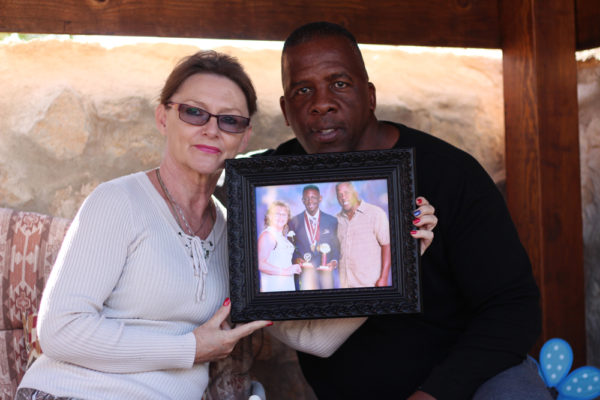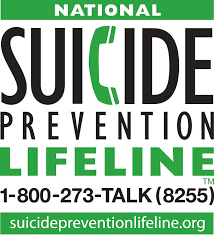EL PASO, Texas — Maria Bristow sees the school bus coming and leaving hoping to see the face of her “baby boy.” But she knows her 14-year-old son DeAngelo won’t be coming home.
Maria called her son Oct. 3 to let him know she would be a few minutes late returning home from a show she was attending with a friend. DeAngelo said there was no problem and hung up the phone.
When Maria arrived a sort time later, she was unable to get inside because DeAngelo had locked all the doors and she didn’t have her keys with her.
Tony Bristow, DeAngelo’s father, drove back from his Albuquerque trip to help her wife open their home without feeling a worry about the safety of their son.
“He’s a heavy sleeper. He’s probably sleeping with his headphones on,” Maria said she thought at the time.
But as they walked to the inside of their bedroom the morning of Oct. 4, Maria and Tony discovered DeAngelo slumped over in their bed and unresponsive. DeAngelo died of a self-inflicted gunshot wound, according to police reports.
“I touched him but he was cold already—we panicked and started to scream,” Maria said while crying.
The El Paso Medical Examiner’s Office ruled DeAngelo’s death a suicide.
Maria and Tony Bristow said their son possibly committed suicide after participating in the Blue Whale Challenge—a social media practice where participants complete different types of obstacles like taking a picture of your house, revealing personal information, self-mutilation and committing suicide.
Both parents said they believed DeAngelo participated in the challenge after they found out that their son’s tablet was facing him and he was broadcasting his death They found nail polish remover in the bathroom, and Tony’s nephew told them this was a common item used in the challenge.
Blue Whale Challenge incidents have been reported in different parts of the world including Russia, India, Asia and now in the United States, most recently in San Antonio where a 15-year-old boy broadcasted hanging himself on a cellphone. Fact-checking site Snopes.com calls the Blue Whale Challenge story unproven, saying “although certain game groups on social media have been accused of promoting suicide, they have not been found to have directly caused an uptick in young people taking their own lives.” In a May 2017 Wired article, it was reported that the UK Safer Internet Centre was unable to corroborate Blue Whale Challenge claims
El Paso police detectives investigated the possibility DeAngelo killed himself playing the game, but their results were inconclusive, according to reports.
Tony said he owned the gun his son used to shot himself with but said he never told DeAngelo that he had a gun or even talked with his son about guns.
The guns, which had gun locks, were hidden in a closet inside of a case. Tony said his son also found the keys to the gun locks that were on another shelf.
Tony speculates a moderator from the Blue Whale Challenge told his son that some parents hide their guns inside of closets and that was how DeAngelo found the guns.
“Those guns for probably 14 or 15 years or more just had been up there in that closet,” Tony said. “They were hidden and covered, you couldn’t find them unless you actually started moving out stuff from that closet.”

Tony said his son was a smart boy that loved karate, swimming and cooking. He said his son was so smart that he wanted to be a computer programmer after winning a robotics competition at UTEP.
“They even went to the world championship in Houston,” Tony said. “DeAngelo was very intelligent, very smart and very particular about the way in which you do things. A fun guy but he was a quiet guy.”
DeAngelo’s room is intact. His favorite red shoes and all of his shirts are still inside of the closet. His report card with As and Bs and school certificates are still hanging on the walls of his room. His PlayStation 4 control, his long collection of movies and video games and his black headphones are still there.
“We don’t want to move anything,” Tony said. “I don’t know if there will ever be a day where we feel ready to move his things. I feel that he’s here. When we come into this room we know he’s here in spirit.”
Maria decorated his son’s room with a Santa Claus hat, a red blanket whishing DeAngelo a Merry Christmas and a decorated Christmas tree which has several photos of the Bristow family. She said this might be hardest and saddest Christmas of their lives but that they’ll do everything they can to feel close to their son.
“I want him to have a Christmas because he always decorated the tree and I figured that I don’t want a tree out in the living room but I want him to be happy in here,” Maria said while tears were falling from her eyes.
DeAngelo parents said their son was bullied by other students because he was black. His mother said he was bullied for more than two years and this might have also played a role in DeAngelo’s death.
“He wouldn’t even talk bad about the kids who bullied him, he just didn’t want to be associated with them,” Maria said. “He didn’t deserve to be bullied like that, nobody does. Who cares what color you are?”.
DeAngelo was among the many students in the country who have reported they have been bullied. More than one out of every five (20.8 percent) students in the U.S. report being bullied.
In 2014, suicide was the 10th leading cause of death in the U.S. among all ages. In both the U.S. and Texas, suicide was the second leading cause of death for people between the ages of 10-34 years.
According to the El Paso County Medical Examiner’s Office annual report, between 2011 and 2016, 46, 65, 75, 96, 71, and 85 suicides were reported per year, respectively.
“This needs to stop, too many children are killing themselves because of bullying. And they do not talk about it, they don’t tell anybody,” Tony said. “My son was a type of child that was tough from the outside but very soft from the inside.”
Maria said stricter consequences should be applied to those who are bullies because the consequences are affecting others to take dangerous solutions.
“Not just a little slap on the hand, or being suspended from school. Get them a criminal record because those kids have other kids killing themselves,” Maria said. “It’s not fair that those kids can be running around while our kids are dead.”
Tony encourages people to be attentive to all their family members because he said he doesn’t want more people to go through what his family is experiencing.
“If you see someone getting bullied at a restaurant make it your business,” Tony said. “Intervene and don’t let anyone be bullied. I want other parents to be noisy with your kids. Get in their business, that is your business, mom and dad.”

Warning signs of suicide
- Talking about wanting to die
- Looking for a way to kill oneself
- Talking about feeling hopeless or having no purpose
- Talking about feeling trapped or in unbearable pain
- Talking about being a burden to others
- Increasing the use of alcohol or drugs
- Acting anxious, agitated, or recklessly
- Sleeping too little or too much
- Withdrawing or feeling isolated
- Showing rage or talking about seeking revenge
- Displaying extreme mood swings
What to do if a person mentions or talks about suicide
- Do not leave the person alone
- Remove any firearms, alcohol, drugs, or sharp objects that could be used in a suicide attempt
- Call the National Suicide Prevention Lifeline at 1-800-273-TALK (8255)
- Take the person to an emergency room, or seek help from a medical or mental health professional
Suicide prevention resources:
- The Emergence Health Network (EHN) provides 24-hour telephone counseling and crisis intervention for individuals experiencing emotional distress or severe mental health crises. EHN provides face-to-face counseling, crisis intervention and crisis counseling and support and referral for long-term treatment. A psychiatrist is available if immediate medication or psychiatric interventions is needed. Call (915) 779-1800.
- The NATIONAL SUICIDE PREVENTION HOTLINE provides 24/7, free and confidential support for people in distress, prevention and crisis resources for you or your loved ones, and best practices for professionals. Call 1-800-273-8255.
- National Alliance on Mental Illness offers peer-led support groups for family members, caregivers and loved ones of individuals living with mental illness. Call 915-534-5476 or 915-534-5478.
- The Veterans Crisis Line and Military Crisis Line connects veterans and service members in crisis and their families and friends with qualified, caring U.S. Department of Veterans Affairs responders through a confidential toll-free hotline, online chat, or text 1-800-273-8255

